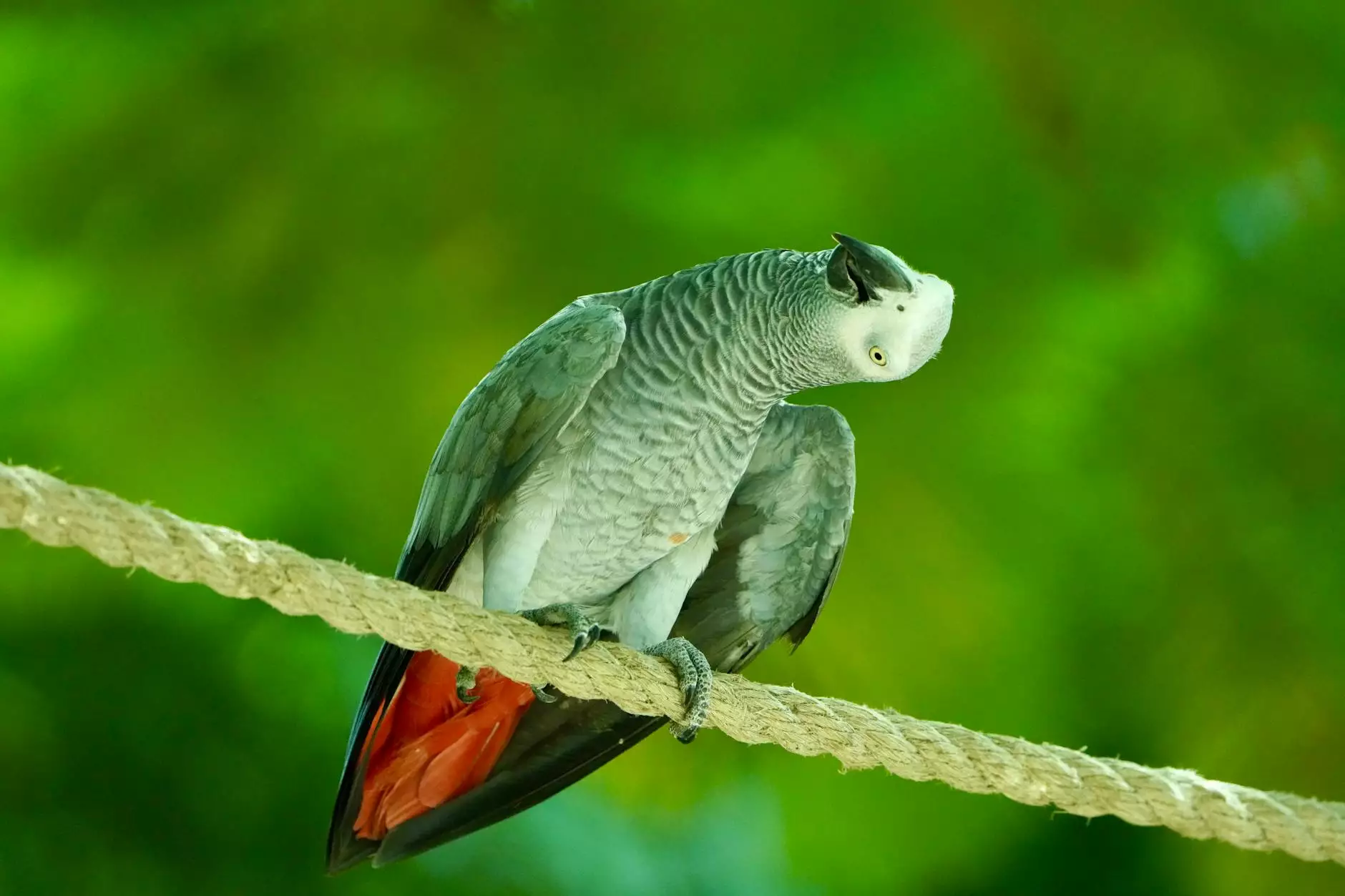Understanding the Rare Eclectus Parrot: A Comprehensive Guide for Pet Enthusiasts

The rare eclectus parrot is not just a bird; it’s a stunning member of the avian family that captivates with its vibrant colors and unique personality. As a pet enthusiast considering a feathered companion, it’s essential to understand everything about this remarkable species. This article delves deep into the characteristics, care, and requirements of owning a rare eclectus parrot, ensuring prospective owners are fully equipped to provide the best environment for their new friend.
What is the Rare Eclectus Parrot?
The eclectus parrot is a medium-sized parrot originating from the tropical forests of New Guinea, the Solomon Islands, and nearby island nations. Notable for their sexual dimorphism, male and female eclectus parrots exhibit strikingly different colors. Male eclectus parrots are vibrant green with bright orange and yellow under the wings and a deep blue underneath the tail. In contrast, females sport beautiful red and purple plumage, making them visually stunning.
The Fascinating Characteristics of the Rare Eclectus Parrot
When considering a pet, it's crucial to appreciate not only its appearance but also its personality traits. The rare eclectus parrot is known for the following characteristics:
- Calm Temperament: Often regarded as one of the gentler parrot species, the rare eclectus parrot is known for its calm and affectionate nature.
- Intelligence: These parrots are highly intelligent, capable of learning commands, tricks, and even human speech.
- Social Creatures: Eclectus parrots thrive on social interaction and require companionship to be truly happy.
- Long Lifespan: With proper care, these parrots can live for 30 years or even longer, making them a long-term commitment.
Why Choose a Rare Eclectus Parrot as Your Pet?
Choosing the right pet can be a challenging decision. Here’s why the rare eclectus parrot stands out among other pet options:
- Unique Personality: With their engaging personalities, eclectus parrots often bond deeply with their owners, displaying affection and loyalty.
- Stunning Appearance: The vibrant colors and markings of the rare eclectus parrot make them a beautiful addition to any home.
- Low Noise Level: Compared to other parrot species, eclectus parrots are relatively quieter, making them suitable for apartment living.
- Educational Opportunities: Their intelligence provides ample opportunities for training and enrichment, allowing for a rewarding interaction.
Housing Your Rare Eclectus Parrot
Creating a suitable home for your rare eclectus parrot is vital in ensuring its happiness and well-being. Here are essential tips for setting up their living environment:
Cage Selection
Invest in a spacious cage that allows freedom of movement. A cage with dimensions of at least:
- 24 inches wide
- 24 inches deep
- 36 inches tall
This size ensures the bird can stretch its wings and move comfortably. Ensure that the spacing between the bars is appropriate to prevent escape or injury.
Cage Accessories
Provide various perches of different diameters and materials to maintain foot health. Additionally, consider including:
- Hiding spots: Small huts or covered areas can provide comfort during rest.
- Toys: Engaging toys will stimulate play and mental activity, crucial for their well-being.
- Food and Water Bowls: Ensure they are stable and easy to access. Change water daily.
Feeding Your Rare Eclectus Parrot
Feeding your rare eclectus parrot a balanced diet is fundamental to its health. Their dietary needs differ from typical seed-based diets. Here’s how to provide optimal nutrition:
Recommended Foods
The diet of an eclectus parrot should be varied and nutritious, including:
- Fresh Fruits & Vegetables: Offer a rotation of diced apples, carrots, leafy greens, and berries.
- High-Quality Pellets: Invest in pelleted foods that are specifically formulated for eclectus parrots.
- Nuts & Seeds: These should be given in moderation due to high-fat content, ensuring a balanced diet.
Foods to Avoid
Be cautious with certain foods that can be harmful, including:
- Avocado: This is toxic to parrots and must be avoided.
- Caffeine & Alcohol: These substances can cause serious health issues.
- Chocolate: Like many pets, chocolate is highly toxic to parrots.
Health Care for the Rare Eclectus Parrot
Just as with any pet, regular veterinary care is essential for your rare eclectus parrot. Here’s what you need to consider:
Routine Checkups
Schedule annual checkups with an avian veterinarian who specializes in birds. Regular health examinations can help detect potential issues early.
Common Health Issues
Be aware of common health concerns that may affect eclectus parrots, such as:
- Psittacosis: A bacterial infection that can affect both birds and humans.
- Obesity: Due to their love for high-fat seeds, eclectus parrots can become overweight without proper dietary management.
- Feather Picking: Stress or boredom can lead to this behavioral issue, requiring attention to environmental enrichment.
Socialization and Training for Your Rare Eclectus Parrot
Socialization is crucial in developing a well-rounded and happy rare eclectus parrot. Take the following steps to encourage positive interactions:
Daily Interaction
Spend quality time with your parrot daily. This fosters a bond and helps the bird become accustomed to human interaction.
Training Sessions
Utilize positive reinforcement techniques to train your parrot. Short sessions that include praise and treats can lead to effective communication and learning.
Understanding Body Language
Learn to interpret your parrot’s body language to understand its needs and reactions better. Signs of comfort may include:
- Relaxed posture.
- Showing vibrant colors.
Conversely, signs of stress may include:
- Fluffing feathers.
- Agitated wing flapping.
The Joy of Owning a Rare Eclectus Parrot
Owning a rare eclectus parrot is a rewarding experience filled with joy and companionship. With their charming personalities, stunning appearances, and intelligence, they make exceptional pets for those willing to provide the love and care they need. By investing time into understanding their needs and ensuring a proper living environment, owners can cultivate a lasting bond with these remarkable birds.
Conclusion
If you’re ready to add a rare eclectus parrot to your family, begin by finding a reputable pet store or breeder. Embrace the journey of bird ownership with knowledge, preparation, and love. For more information and resources on caring for your feathered friend, visit rareexoticbirds.com.au.









